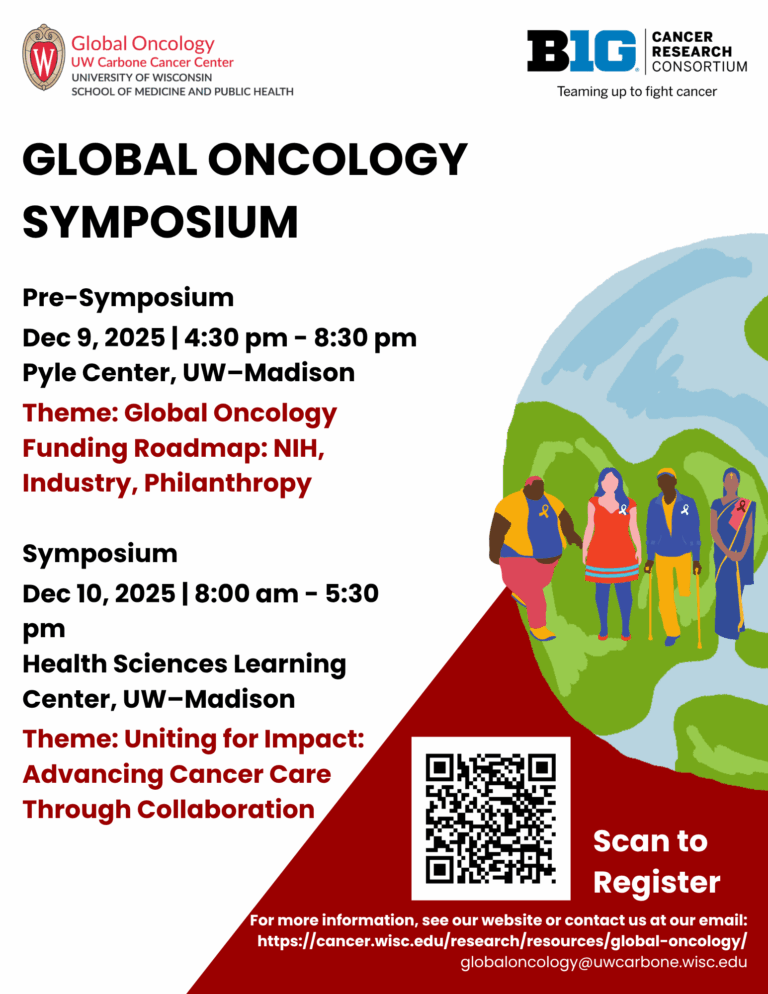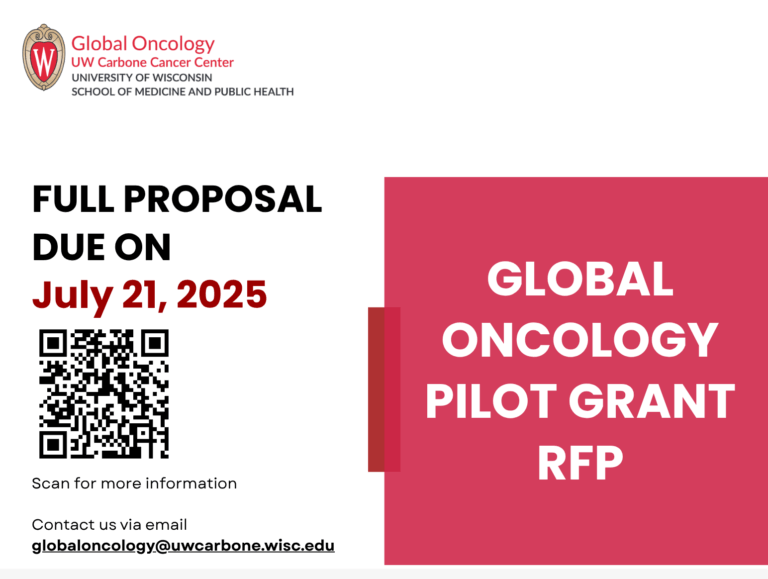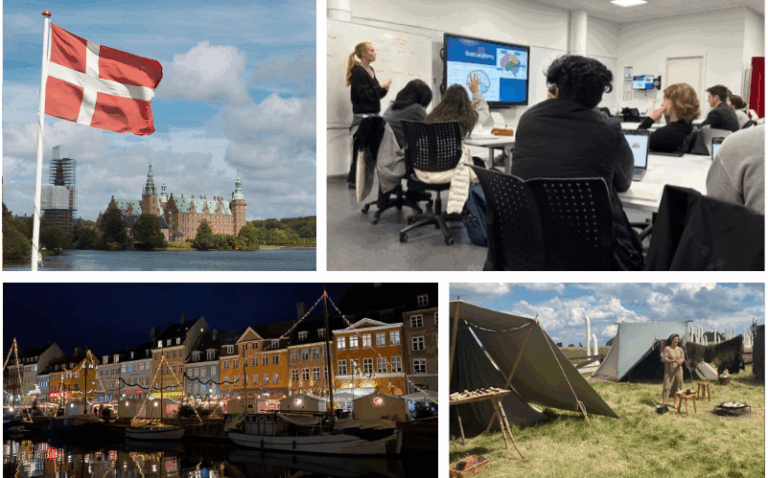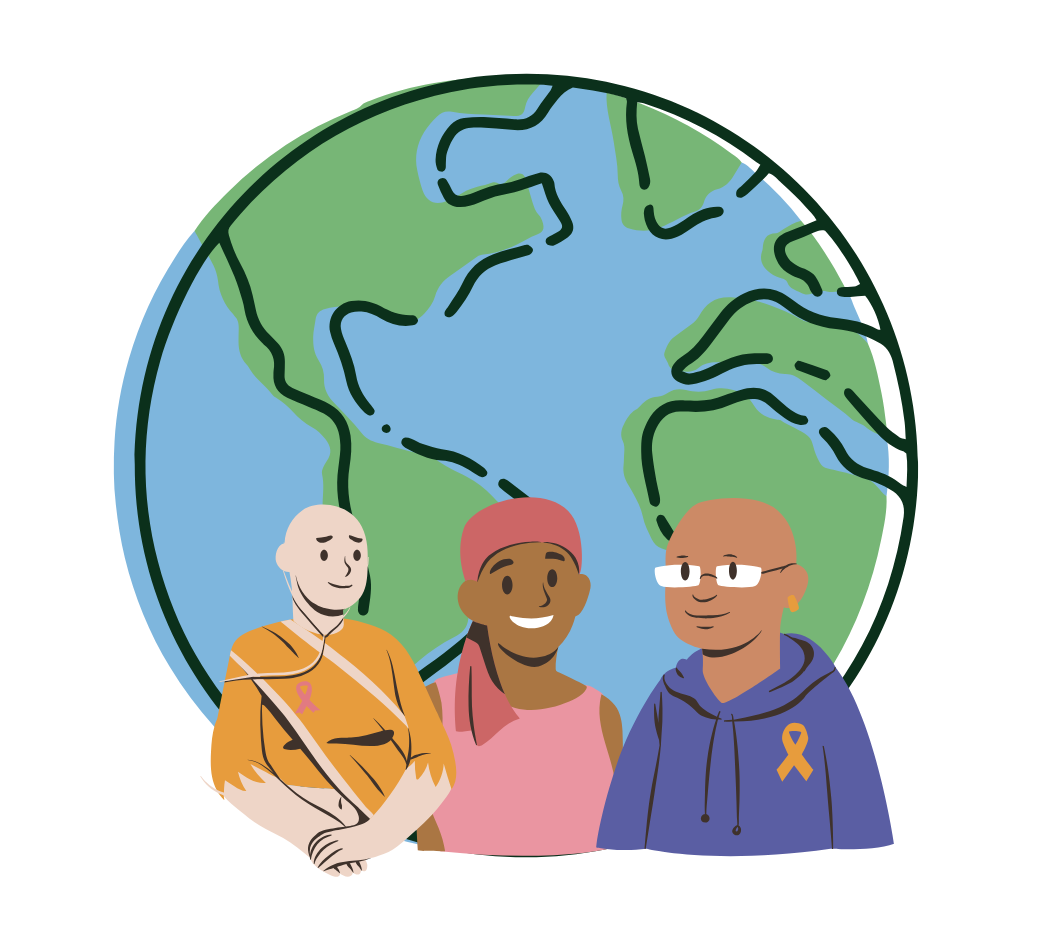Our Mission
The mission of the Global Oncology Program within UW-Madison’s Carbone Cancer Center is to foster partnerships between faculty and trainees across campus and with other national and international institutions, with the goal of addressing disparities in cancer care within low- and middle-income countries through research, education, outreach, capacity building, policymaking, and technological innovations.
Global Oncology Symposium 2025
December 10, 2025
8:00 am – 5:30 pm
Health Science Learning Center Atrium
Conference theme:
Uniting for Impact: Advancing Cancer Care Through Collaboration
An in-person gathering for connection, collaboration, and impact.
The Global Oncology Symposium brings together trainees, researchers, clinicians, administrators, and faculty to share ideas, build partnerships, and advance cancer care worldwide. Join us to network, learn, and be part of the movement shaping the future of global oncology.


Global Oncology Pilot Grant – Applications Closed for the year
Apply for a $15,000 seed grant to support cancer research projects in low- and middle-income countries.
Open to UW–Madison faculty (UWCCC members or collaborators)
Full proposal due: July 21, 2025 – 5:00 PM CST
Selected grantees may present at future Global Oncology Symposiums.
Contact: globaloncology@uwcarbone.wisc.edu
Undergraduate Opportunity
GO Cancer Care Across Cultures – UW–Madison Study Abroad Program
This unique study abroad course offers undergraduate students the opportunity to explore cancer care through a global and cross-cultural lens. Participants will engage with health systems, cultural practices, and global oncology challenges in an immersive international setting.
$1000 guaranteed scholarship for 2025-26
Location: Copenhagen, Denmark
Open to: Sophomore+ undergrads (2.0+ GPA)
Applications are closed for this year

Program Leaders: Dr. Nabeel Zafar & Dr. Sofia Refetoff
Course Dates:
Madison: Dec 29, 2025 – Jan 3, 2026 (no class Dec 31–Jan 1)
Denmark: Jan 6–19, 2026
Questions?
Contact Emily Wink or Lindsay Heiser Barger
- WHO report on cancer: setting priorities, investing wisely and providing care for all (2020)
- Global Oncology Survey of NCI-Designated Cancer Centers Summary Report (2018-2019)
- Global cancer surgery: delivering safe, affordable, and timely cancer surgery. The Lancet Oncology (Sept 2015) Commission
- Evolving Issues in Oncology, Global Oncology. American Medical Association (2019)
- The Economic Burden of Cancer. The American Cancer Society, Inc (2019)
- Cancer Disease Control Priority, 3rd edition. World Bank Group (2015)
For questions, collaborations, or to learn more about our work, reach out to us at:






